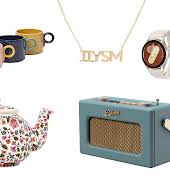
Britney Spears’ ‘me time’ is an opportunity to change how we talk about mental health
By Erin Lindsay
06th Apr 2019
06th Apr 2019
Nostalgia has made itself something of an unofficial theme of 2019. The Spice Girls and Westlife are the sold-out gigs of the summer, the platforms and crop tops of 00’s youth are our uniforms, and shows about Troubles-era Derry and 80’s middle-America (yes, I am waiting with bated breath for Stranger Things to come back) are what we’re glued to.
I did, however, get a not-so-nice dose of nostalgia this week, with a glance at a headline that felt familiar. “Britney Spears Checks into Mental Health Facility”. Spears reportedly checked herself into a healthcare facility due to the emotional toll of caring for her father, who suffered a life-threatening colon rupture last year. In January, Spears announced that she would be putting her planned Las Vegas residency, and her music career, on hold for the sake of her father and family.
Related: Last night in Dublin Britney Spears proved all the critics wrong
The not-so-nice feeling was not because of the story itself. Although sad that Spears is going through such a tough time, I commend her for taking the proper measures to look after herself and her health, but my feeling was more apprehension. What kind of horrible headlines would this story churn out?
Spears’ history
It should come as no news to any of us that Spears has been a long-berated victim of the always-on tabloid media. In 2007 and 2008, years commonly recognised online as synonymous with Spears, the star suffered a series of public incidents that resulted in a public bashing that few other celebrities could compete with.
Related: Weekend read: Mental health awareness is great, but now it’s time for action
While Spears was suffering from personal issues and was obviously in need of care and support, she instead received an unwanted title as the year’s ‘craziest’ celebrity. Words like ‘meltdown’, ‘insanity’, ‘breakdown’ – terms that are insensitive at best, callous and cruel at worst, were used to describe a woman’s struggles with mental illness. Because Britney, although a celebrity who makes her living from being in the public eye, is still a woman. She is still a person, with the same anxieties and intrusive thoughts that everyone else suffers with. Money and fame, although useful in so many ways, are not a cure-all for mental illness and personal issues. As the saying goes, wherever you go, there you are (even if where you go looks so rosy to outsiders).
Change in attitudes
That was 11 years ago. Using the words ‘crazy’ and ‘insane’ to describe someone suffering from a mental illness is now, in 2019, seen as incredibly bad taste, and harmful to the person in question. And rightly so. Here in Ireland, suicide is one of the leading causes of death, and the stigma surrounding the open and honest discussion of mental health is undoubtedly a factor.
We have gotten better, yes, but for those like Spears, who suffered at the hands of ignorance before society became more ‘woke’ about mental health, it is probably of little comfort.
As I scrolled through the headlines about Spears, it struck me that the words ‘meltdown’ and ‘insane’ did not make an appearance. Instead, I saw captions about how she is “doing much better” after checking in, and that she is “focusing on self-care while going through a rough stretch”. What’s more, the notorious Twitter comments were not full of users baying for blood. An atmosphere of total protectiveness and support abounded, with many commenting on the importance of not returning to 2007-levels of coverage. Anyone wishing to make a joke at Spears’ expense was promptly, and vehemently, told where to go.
Turning a corner
Have we made a breakthrough? It certainly seems so. It’s entirely probable that the level of love for Spears is due to her years of building up goodwill in the public eye. She is the sweet all-American girl at heart. One has to only cast their minds back to the online treatment of those like Sinead O’Connor to see that not everyone receives the same compassion. Perhaps this can be seen as a turning point, however small. Maybe now a woman’s right to her mental health not being tabloid news can finally be fulfilled.
Related:























